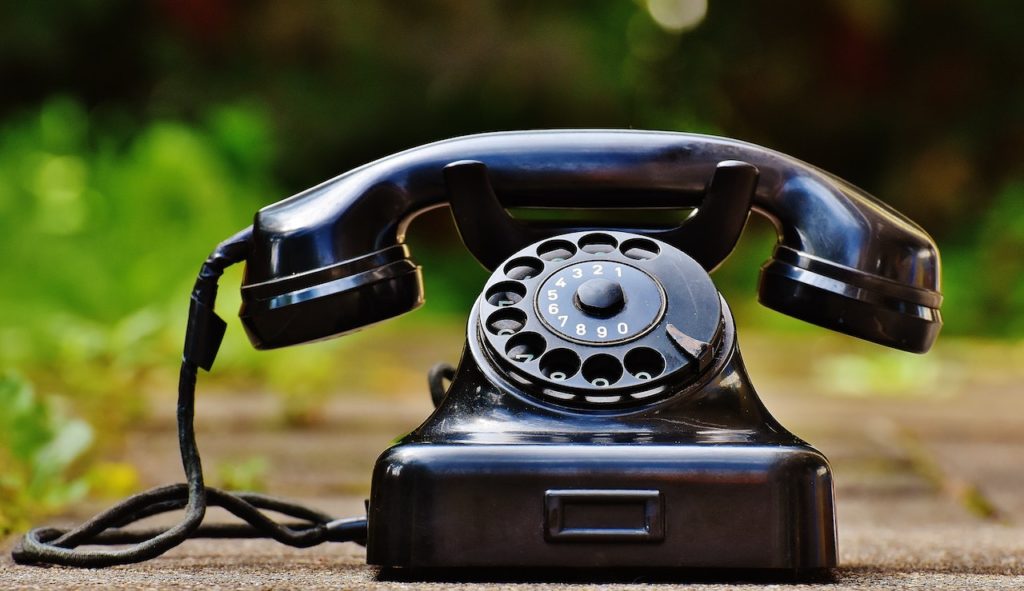
Scammers are more sophisticated than ever, and they’re doing it by returning to one of the most basic forms of communication we have…our phones.
It seems almost impossible to avoid every oddball or unknown phone number that calls you. While some are harmless, others are more intentional about trying to separate you from your money, identity, and your sanity.
Types of Scams
There are several common types of calls that demonstrate red flags you should look out for.
The one-ring scam happens when scammers use robocall technology to place internet calls that ring only once on cell phones. If you pick up, the robocall drops the line. However, if you miss or ignore the call and later call back the number, you could be on the hook for international calling fees with area codes outside the U.S. Those fees can be as much as a whopping $15-$30 per minute!
The Federal Trade Commission (FTC) says you should never call back numbers in these area codes:
- 268: Antigua and Barbuda
- 284: British Virgin Islands
- 473: Grenada, Carriacou and Petite Martinique
- 664: Montserrat
- 649: Turks and Caicos Islands
- 767: Commonwealth of Dominica
- 809, 829, 849: Dominican Republic
- 876: Jamaica
When an unfamiliar number comes in, you’re better off waiting for a voicemail to determine if the call is legitimate before calling back. You can also Google the phone number on the chance that others have already posted about the number and whether it’s legitimate or not.
How prevalent are robocalls? It’s estimated more than 36 billion robocalls have been placed in 2022 according to the YouMail Robocall Index
With a prize-winner scam a caller will tell you that you’ve won a prize or a lottery. But then they’ll ask you for a fee to confirm the prize and shipping costs or for another reason related to unlocking your winnings.
Scammers also prey upon you with threats that you’ll get arrested or face fines if you don’t comply with law enforcement actions or those related to a federal agency. You may immediately be coerced into paying IRS penalties, taxes, or other debt.
Scammers may also call you with a limited time offer and force you to commit to something that sounds too good to be true. Here’s a hint. If it sounds too good to be true and the caller on the other end of the line wants a decision or money from you now, it is too good to be true. Hang up immediately.
Debt relief and credit repair scams are also common. Callers will offer you lower credit card rates, promise to fix your credit, or agree to help you get debt forgiven for an upfront fee.
Another quasi-government scam is someone calling purporting to be from a government agency and asking you to confirm sensitive information such as your Social Security number, bank accounts, or other similar private information. Government agencies never do this! Do not divulge anything if you get a call like this.
Charity scams always pop up, especially immediately following a large-scale natural disaster. Never feel pressured to give until you’re ready to help. Always check out a charity before you give or give only to well-known charities such as the Red Cross.
Someone you’re unfamiliar with may call you with a legitimate sounding deal but will ask you to pay with cash, a gift card, wiring money, or some other form of payment that gives you no recourse to get your money back if they take off with it. Only pay with negotiable instruments that protect you in case you’re victimized.
A recent scam making the rounds is a robocall that starts with the simple four-word phrase “Can you hear me?” in hopes of recording your response and using it to commit fraud.
The phrase is designed to trick the victim into responding “yes,” while the person or computer on the other end records the response. The scammer can use the recording to access important online accounts, make purchases and commit fraud like identity theft. All they must do is play the recording of your voice saying “yes” when asked to authorize a log-in or agree to a major purchase.
What You Can Do to Lessen Scam Calls
The first and most obvious thing you can do is never answer calls from numbers you don’t know. Let calls roll to voicemail.
All the major wireless carriers offer robocall blocking. There are also several free and paid third-party apps that you can also use to block scam phone numbers. A little online research should produce another added layer of protection.
If you’re on the National Do Not Call Registry, you shouldn’t get live sales calls from companies you haven’t done business with before. Those calls are illegal. If someone is already breaking the law calling you, there’s a good chance it’s a scam.
Also, don’t trust your caller ID. Scammers can spoof you and make any name or number show up on your caller ID. Even when a number looks like it’s a government agency or the call is from a local number, it could be a scammer calling from anywhere in the world.
What if You’ve Already Been Scammed
Scammers know which methods of payments make it challenging for you to get your money back. Sometimes that money is gone forever, but there are ways to protect yourself.
If you paid a scammer with a credit or debit card, you may be able to stop the transaction. Contact your credit card company or bank right away. Tell them what happened and ask for a “chargeback” to reverse the charges. The same action applies if you paid a scammer with a gift card, prepaid card, or cash reload card. Call and ask for a refund as quickly as possible, and you may be able to recover your money.
Contact the app company if you paid a scammer using a money transfer app like PayPal or Venmo. However, contact your credit card company or bank first if the app is linked to a credit card or debit card.
In instances where you gave your username, password, or other sensitive information to a scammer, change your information right away. If you use the same password for other accounts or sites, change it there, too.
If you gave a scammer your Social Security number (SSN), visit IdentityTheft.gov to learn how to monitor your credit report to see if your SSN is being misused.
You should report scams as well.
When you’ve lost money to a phone scam or have information about the company or scammer who called you, report it at ReportFraud.ftc.gov. If you didn’t lose money but want to report a call, you can use the reporting form at DoNotCall.gov.
 Guarding Against IRS and Social Security Scams
Guarding Against IRS and Social Security Scams  What Type of Scams Should You Guard Against? Part 1: Business Case Studies
What Type of Scams Should You Guard Against? Part 1: Business Case Studies  What to do if You’re a Small or Medium Business and You’ve Been Scammed
What to do if You’re a Small or Medium Business and You’ve Been Scammed 

